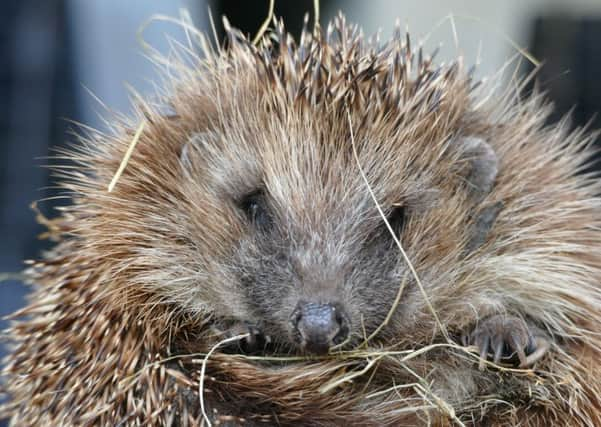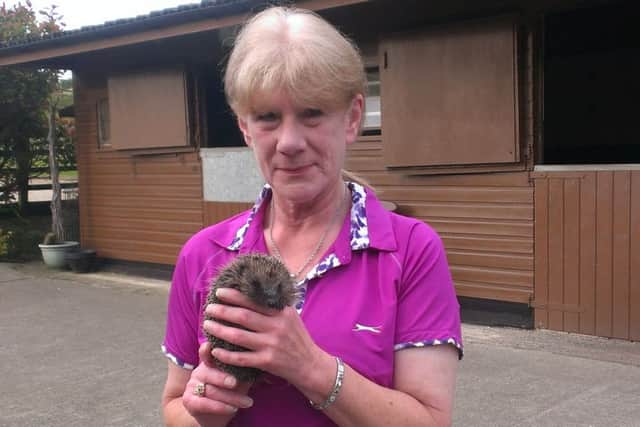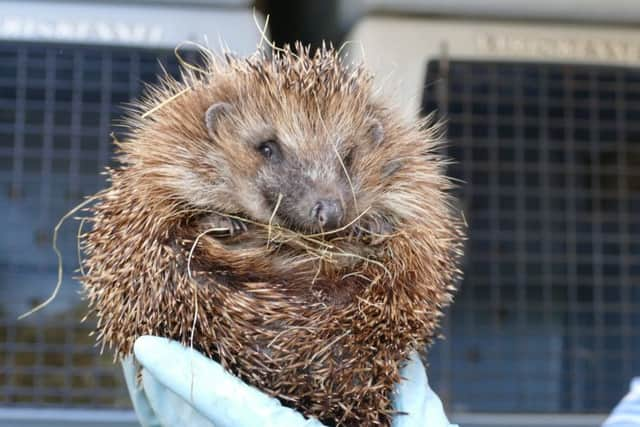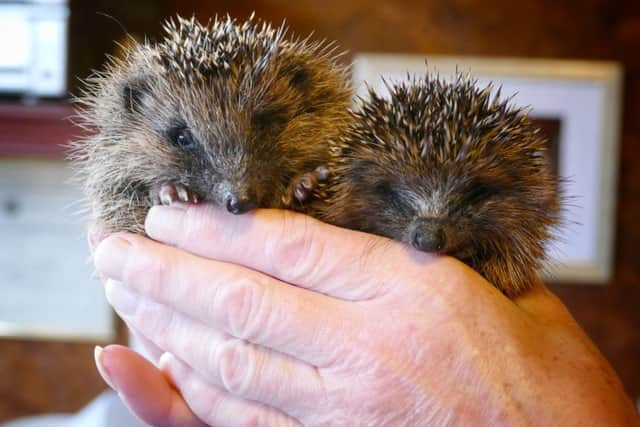Hedgehog rescuer needs your support


Three years ago the Burnley volunteer rescued a female hedgehog with a large wound splitting its back as a result of an attack. She spent the night picking out maggots.
Heartbreaking as it is, Katrina knows that to save lives we must face up to the cruel reality inflicted upon wild animals. Thanks to her courage and determination, the rescued hedgehog made a full recovery and was released back into the wild.
Advertisement
Hide AdAdvertisement
Hide AdToday, more than 20 hedgehogs are in her care, four having arrived at her home in Burnley last week. Some have an illness like hyperthermia, others are underweight or carrying injuries.


“When they have hyperthermia,” she said, “they become dopey. They don’t eat or drink.”
Eyes still unopened, one of last week’s rescues was just 10 to 12-days-old when found. Its mother had disappeared.
Having been exposed to the elements for a couple of days, its cold body weighing only around 200g, has been wrapped up in fleeces on a heat pad.
Advertisement
Hide AdAdvertisement
Hide AdHand-fed with a syringe for a day, the hoglet, like any other, must up its weight to 650g before it is fit to hibernate. Any that don’t will remain with Katrina till next spring.


“It’s just life,” she says, as an explanation for the suffering wildlife endures. But as she said, harm to hedgehogs is caused by our lifestyle choices and their consequences: climate change; herbicides; slug pellets; and a destruction of habitat, which opens them up to predators.
In response to erratic temperature changes, female hedgehogs have been giving birth at unusual times of the year. And when the first frost sets in, instinct is to prepare for hibernation. Babies are abandoned.
In general, though, hedgehogs are in decline. In the 1950s, there was an estimated 30 million. Today, there’s less than one million. And the number is still dropping.
Advertisement
Hide AdAdvertisement
Hide AdBeing nocturnal creatures, they’re rarely seen during the day. It’s always a sign something is wrong when they are.


In such circumstances, Katrina offers the following advice: “Give them plenty of fresh water in case they’re hyperthermic. Put them in a deep box they can’t get out of - believe it or not, they do climb - and wrap them in a towel or a fleece, anything warm. Straightaway, contact Rochdale Hedgehog Rescue.
“If you want to feed them in your garden at night, then they absolutely love dried meal worms, sunflower hearts, peanuts, raisins, cereals and suet pellets.
“However, never feed them bread, fish or cow’s milk, as they are lactose-intolerant.”
Advertisement
Hide AdAdvertisement
Hide AdWhile the entirety of the mission can seem overwhelming, even small changes can make a huge difference to the welfare of wildlife.


“People’s gardens tend to be too tidy. Hedgehogs can be very urban so if you leave a wild patch in your garden with a hole in the fence and a ‘hog cave’, a bed of logs, leaves and straws, they may hibernate there.”
The animal-lover has been rescuing hedgehogs full-time for six to seven years, ever since one crawled on to her lawn in the days running up to winter. Now she’s a volunteer for Rochdale Hedgehog Rescue: it’s a time-consuming role which requires a well of patience.
“It’s an ongoing thing,” she said. “We’re extremely busy - that’s the nature of it. With the little ones, you go the extra mile. We call them our ‘residents’. They’re not pets; and they’re not ours. We just care for them.
Advertisement
Hide AdAdvertisement
Hide Ad“We have some incredible personalities here: some are extremely docile and beautiful to handle. We call them ‘Mr or Mrs Sweetypie’.
“Some might bite you and some are grumpy but then they settle down. All they need is a caring environment. One thing I love about this work is that when they’ve been rehabilitated, they turn back wild. They become aggressive and curl up in a ball, hissing and growling.”
This defence mechanism, she said - and this “feistiness” after weeks and months of depending on human care - is “what we like to see”.


• Donations of food - cat biscuits and meal worms - are always gratefully received.
To arrange a donation to Katrina’s residents, please call Sue Lewis of Rochdale Hedgehog Rescue on 01706 860904 or email [email protected]